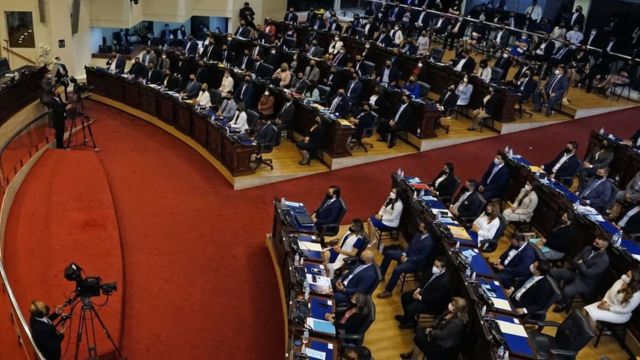
El Salvador
Impact | Negative
Rating Civicus | Obstructed
On April 24, in a special session called by President Nayib Bukele, 67 of the 84 deputies of the Legislative Assembly, from the ruling and opposition blocs, voted in favor of extending the country’s state of exception in support of the government’s continued crackdown on gang violence and efforts to restore security and order. In this way, greater powers were granted to the security forces, including the National Police or the Armed Forces, and the constitutional rights of free assembly, free association and the guarantees of due process remain suspended.
During the same session, the legislators also approved a transitory reform to the Law of Acquisitions and Contracting of the Public Administration (LACAP in Spanish), which provides the government with greater discretion in the processes of purchase and contracting of services. The LACAP provides for a series of deadlines and procedures to control the transparency of the process and thus avoid discretion in the use of public funds. However, this transitory reform omits these procedures, completely suspending the provisions of the LACAP for the duration of the exception regime. On the other hand, it empowers the Ministry of Finance to design the regulatory instruments to carry out the contracting process. Thus, the existence of transparency and accountability mechanisms to access information on the use of public funds, awards and names of suppliers will be limited to the regulations issued by the Executive Branch.
Civil society came out forcefully against the government’s measures. A group of local and international NGOs issued a press release stating that citizen security policies must respect human rights and also have mechanisms of accountability and citizen participation. For its part, the Association of Journalists of El Salvador (APES in Spanish) filed a constitutionality suit to suspend the effects of the measures that sanctioned the dissemination of messages in the media that could allude to criminal groups, considering that these violate the right to access to information, freedom of expression and the free exercise of journalism. The criticisms were answered by the Minister of Justice and Public Security, Gustavo Villatoro, who accused the NGOs of financing violence in the country, and the president of the Legislative Branch, Ernesto Castro, who in response to the demand of the press union stated “We don’t need you, go away,” in reference to journalists.
In this context, the Inter-American Commission on Human Rights (IACHR) urged the government to observe judicial guarantees and due legal process in all circumstances during the regime of exception, and criticized the reforms to the penal and procedural legislation which aggravates the sanctions against adolescents older than 12 and 16 years old.


